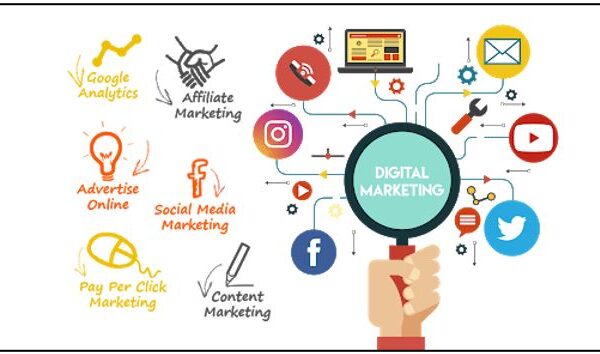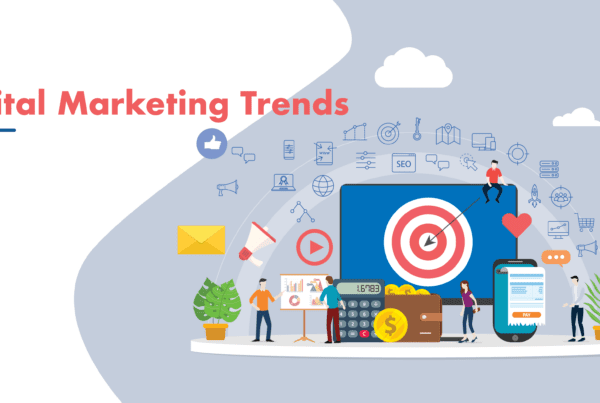If you want to drive long-term growth for your business, the right digital marketing strategy is a must. With the right approach in place, you can better meet buyers at every point in the purchase journey and optimise for long-term growth.
Here are the four core pillars of a modern digital marketing strategy:
Pillar 1: SEO
SEO (Search engine optimisation) helps boost the visibility of your content. If you get it right, for B2B specifically, it helps your buyers build trust and confidence in your business and helps you drive traffic with intent: Do they want to learn? Are they ready to buy? The keywords inform this. Plus a lot of B2B terms aren’t crowded yet so it’s easier to compete for them and boost rankings.
In short, SEO is the process of optimising your website to rank higher in the search engine results pages (SERPs) to increase the amount of traffic your website receives.
When customers are looking for products or services during the research phase, they often turn to search engines, such as Google. That’s why being found on the first page of the search results increases your chances of driving traffic to your site to ultimately convert them into sales.
SEO is the backbone of digital marketing and is made up of different elements:
- On-page SEO – the content you see on your website including product pages, landing pages and blogs.
- Off-page SEO – any activities that take place off the page, mostly gaining backlinks or inbound links.
- Technical SEO – anything that involves the back end of your website and anything that affects the performance of your website such as site speed.
- Local SEO – a local SEO strategy helps you appear for customers who are searching in your local area and drive footfall to your business.
Pillar 2: Content Marketing
Content marketing is the promotion and creation of content assets to help you generate brand awareness, traffic to your website, demand generation, and new customers. In summary, it allows you to provide value to your customers by creating informative content that helps to answer customers’ questions and solve their problems by offering your products and services.
One of the main reasons customers turn to search engines is to find knowledge about specific topics, products and services. Make sure that the content you produce and promote should match the search intent of your customers, so make sure it matches their intent at various stages of the customer journey.
But, why is this fundamental for B2B marketing today?
B2B businesses buy from those with an authoritative, trustworthy and reliable voice so you have a much higher chance of converting a prospect if they’ve seen your content and remember it – because it was helpful.
Key types of content include:
- Blog posts – they help to demonstrate your expertise in your industry and help to generate organic search traffic for your website. It will also help you get your brand to the top of the SERPs.
- Infographics – a visual piece of content you can use to provide information in an easy to read and digest way.
- Ebooks and whitepapers – help to provide website visitors with more information on the problems you can solve for them.
Pillar 3: Social Media Marketing
Just like content marketing, social media is critical to B2B brands that want to boost their reputation, build trust, and increase their sales. Being consistent and building familiarity is key!
Promoting your brand on these channels is the perfect way to build brand awareness and generate sales for your business.
There are different ways you can use social media for your business:
- Organic social media – every social media channel allows you to post organic (free) content. This will be shown to your community of followers and its reach can be limited.
- Paid social media – channels such as Facebook, Instagram and LinkedIn allow you to create ads and pay to boost them to a targeted audience.
Social media is a great way to promote your brand, and content, increase brand awareness, drive traffic, sales and generate new leads for your business.
Pillar 4: PPC (Paid Search)
PPC, also known as Paid Search or pay-per-click, provides a way to drive traffic to your website and you only pay when someone clicks through to your website. For B2B, it allows you to target your budget towards those that are showing an intent to buy, so it’s better for ROI. You can get hyper-personalised here to make sure the ad resonates with the B2B buyer and they have a clear expectation that you can solve their challenge.
The goal of your ad is to lead searchers to click on your website and take valuable action such as purchasing a product.
PPC ads are determined by the keywords you select for your business. When searchers type these keywords or phrases into a search engine, such as Google, an auction takes place to decide which ad is shown. The ad that wins the auction is shown at the top of the search results.
Ultranet –
For enquiries on any of our expertise or services, whether it is for website design & development, mobile application development, or digital media marketing, please feel free to contact or WhatsApp +6016-2032 000, email [email protected] or visit https://ultranet.com.my Thank you.




